Samsung SSD 840 Pro (256GB) Review
by Anand Lal Shimpi on September 24, 2012 7:00 AM EST- Posted in
- Storage
- SSDs
- Samsung
- Samsung SSD 840
AnandTech Storage Bench 2011 - Light Workload
Our new light workload actually has more write operations than read operations. The split is as follows: 372,630 reads and 459,709 writes. The relatively close read/write ratio does better mimic a typical light workload (although even lighter workloads would be far more read centric).
The I/O breakdown is similar to the heavy workload at small IOs, however you'll notice that there are far fewer large IO transfers:
| AnandTech Storage Bench 2011 - Light Workload IO Breakdown | ||||
| IO Size | % of Total | |||
| 4KB | 27% | |||
| 16KB | 8% | |||
| 32KB | 6% | |||
| 64KB | 5% | |||
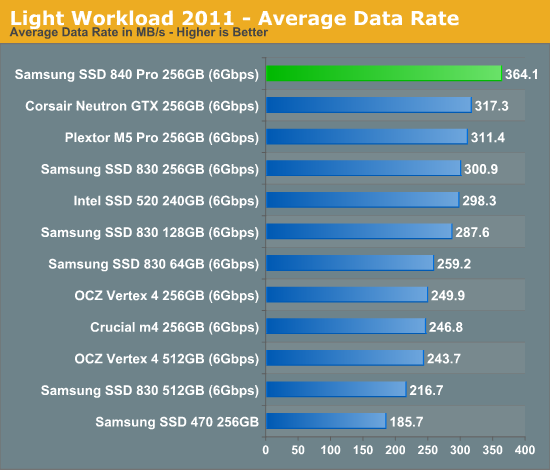
The 840 Pro shows a similar ~20% increase in performance over the 830 in our light suite. Corsair's Neutron GTX is more competitive, but nothing can really touch the 840 Pro here.
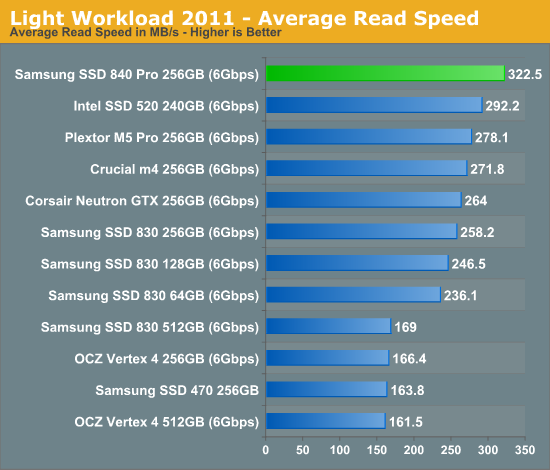
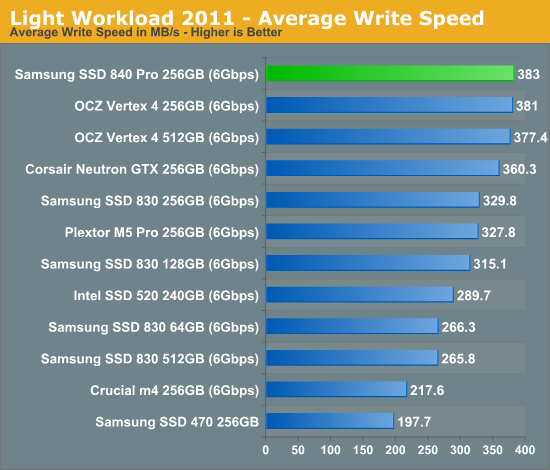
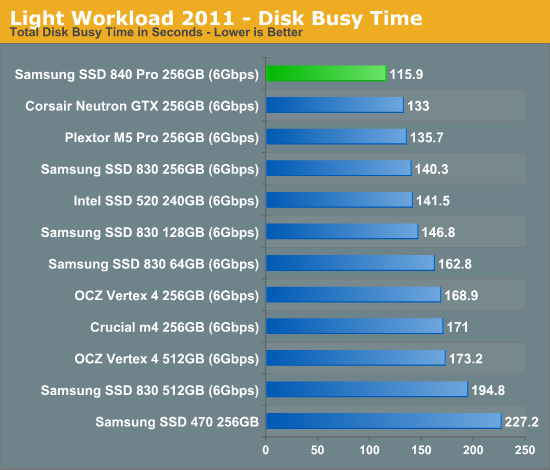
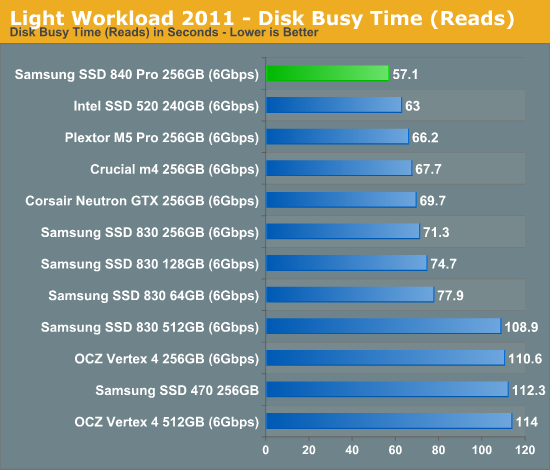
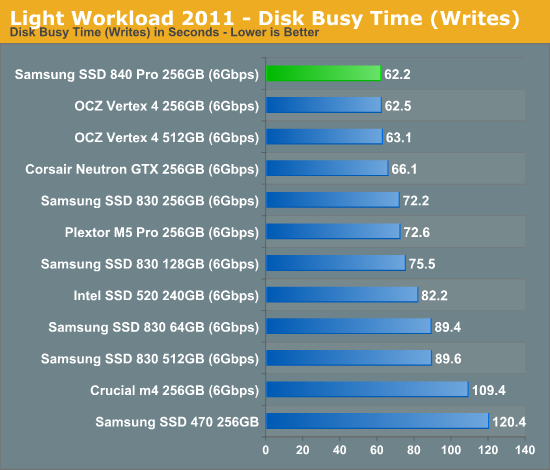










96 Comments
View All Comments
B3an - Tuesday, September 25, 2012 - link
When will you guys have the 840 Pro added to Bench?Kristian Vättö - Thursday, September 27, 2012 - link
Here you go: http://www.anandtech.com/bench/Product/665hrrmph - Tuesday, September 25, 2012 - link
On the recent SSD reviews, thanks for taking the time to let us know about the tool box utilities!!
After years of using OCZ, I just deployed my first Intel 520 a month ago. It's a solid 'no hiccup' performer so far.
Now that the 840 Pro makes Samsung competitive with the best SSDs on performance, warranty, and utilities, I look forward to trying it out.
I particularly like the idea of being able to use the Samsung Magician software to set the spare area. All of my machines have other drives for bulk data, so being able to allocate some unused space on the SSD for use as spare area seems logical.
-
zer0sum - Tuesday, September 25, 2012 - link
Why are some SSD tests on AT being run with Z68, 2500k @ 3.3ghz with turbo and EIST enabled, 1600Mhz ram, and then this one with H67, 2600k @ 3.4 with turbo and EIST disabled, and 1333Mhz ram?Does this effect performance in any of the tests?
Per Hansson - Tuesday, September 25, 2012 - link
It very well might, EIST has been known to cause problems for SSD's in the past.Also would be very interesting to hear Anands thoughts on the power consumption concerns raised above (DIPM: Device Initiated Power Management)
Per Hansson - Tuesday, September 25, 2012 - link
A quick Google shows the first link to Anandtech's own forums, and a quite good confirmation that EIST affects performance by a quite noticeable margin!http://www.google.co.uk/search?hl=en&q=eist+ss...
zer0sum - Tuesday, September 25, 2012 - link
Ok, I had lower than expected 4k write scores with my 3570k @4.5ghz, using EIST and turbo mode so I went with some advice and ran a single thread of prime95 whilst doing an AS-SSD run.Big difference!!
http://www.overclock.net/t/1242088/official-vertex...
mr. president - Tuesday, September 25, 2012 - link
Nice review. I'd still want to see more 'exotic' use cases tested and especially ones that test garbage collection where TRIM isn't available.ZiL ZFS and software RAID spring to mind. Or, from a more consumer oriented standpoint, the PS3 can benefit from an SSD but it has no TRIM support.
serpretetsky - Wednesday, September 26, 2012 - link
"Assuming the premature death of our review sample was a fluke and not indicative of a bigger issue,"Care to elaborate on this? It simply failed after you guys ran all the tests on it?
Is there any way you guys might get another sample and run it through the same (or harder) tests?
Thanks for the review, you guys are awesome.
capeconsultant - Wednesday, September 26, 2012 - link
I second this request :)